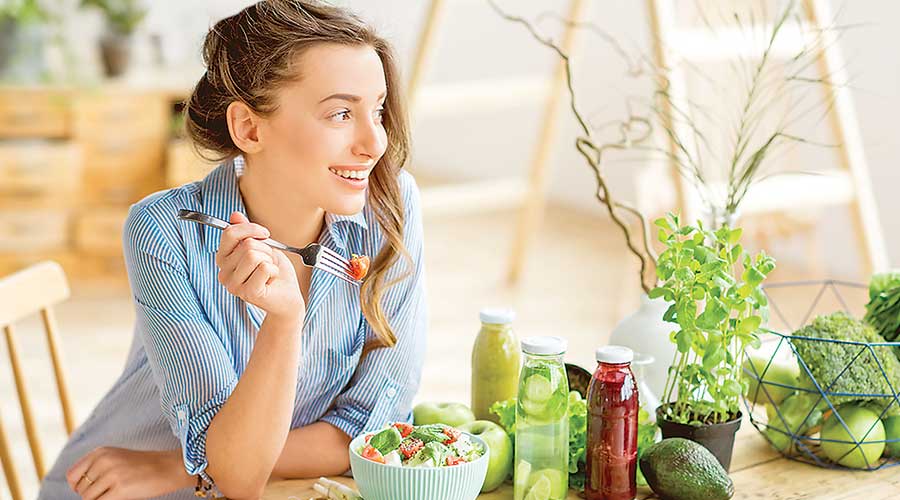Salt therapy – All you need to know
- 24 Feb - 01 Mar, 2024
You’re probably thinking that moving to a plant-based diet sounds like a great idea, but you don’t know where to start. Don’t worry, you’re in the right place – we’ve got the tools, insight, and expertise to make the change easy and enjoyable. We’ll answer your questions, provide helpful advice, and share the techniques you need.

First, you think about your end goal. Anyone who's making a dietary shift should know their why. What's inspiring that change? It's a good thing to be aware of, and that allows you to go into this transition safely, with your eyes as open as possible.
Though there's a lot of concern about being protein-deficient after cutting out meat, it's typically unwarranted. As long as you're consuming a wide array of plant foods, you'll be consuming protein. People equate protein with animal proteins. But plants do contain proteins. If you're eating a varied diet – some nuts, rice, leafy greens, beans – you'll meet your protein needs across the day. Plus, combining foods – like mixing greens with a source of vitamin C, or putting together a grain and a legume – also makes their nutrients more bioavailable and gives you a fuller amino-acid profile.This can happen over the course of a day: You don't have to sit and combine all these elements into one (super healthy) meal. And as a hot tip, some ancient grains, like fonio, are complete proteins on their own: No mixing required.
But a major diet change can present a challenge when it comes to taking in certain nutrients. What we worry about more are deficiencies in omega-3 essential fatty acids, iron, calcium, vitamin D, and B12. But you can get some of those nutrients from other sources, like seeds, or leafy greens, or kelp. It's about eating across a spectrum.
The issue of low iron levels really depends on your personal medical situation. It's important to have a good understanding of your baseline iron status and your needs.
If your blood work indicates that you're a low-iron individual, there's ways to address that without immediately ordering a steak. Some people who start with a lower iron status may want to think about eating more iron-rich plant foods in combinations. Or eat more of the fortified, grain-based products that have iron added to them. You may need to take an iron supplement; in that case, you find one that's highly bioavailable and non-constipating, but cautions that whatever option you choose should be under the direction of your dietician and primary care provider.
As to whether you should take things slow, that's more of a behavioural question. It depends on your personality. Some people who are accustomed to having animal proteins at every single meal like to just cut it all out at once, and some people like to be more gradual. Knowing what you're comfortable with is more important than focusing on the dietary shift itself. But you should prepare for the shift, because to eat more plants, you need to have access to them, and have more of them in your home. And yes, it's okay to buy some simple stuff you can throw in the microwave in a pinch. A little easy vegan food in the fridge is fine – sometimes you want a pre-made veggie burger.
People making big nutritional changes often notice changes in their gastrointestinal system. That's perfectly normal. People who start eating a lot less meat will say, 'I'm not constipated anymore!' And that's a very good situation. Ideally, daily bowel movements are part of clearing out our system and when we're backed up, it doesn't feel good and it's also not great for our bodies.
Ultimately, your choice to opt for seitan over sausage shouldn't be viewed as an all-or-nothing proposition. If you decide not to go fully plant-based, it doesn't mean you're not still making a good choice for your health. By simply adding more plants to your day-to-day diet, you will get some benefits.
COMMENTS